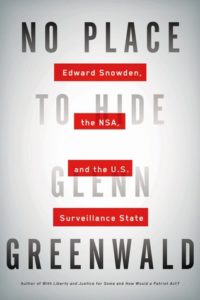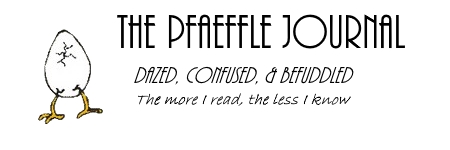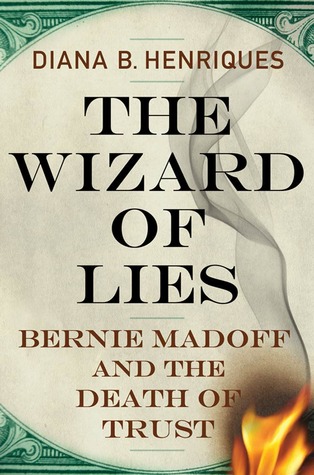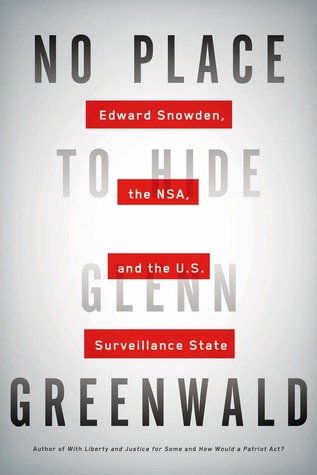 No Place to Hide: Edward Snowden, the NSA, and the U.S. Surveillance State
No Place to Hide: Edward Snowden, the NSA, and the U.S. Surveillance State by
Glenn Greenwald Published by Metropolitan Books/Henry Holt (NY) on
May 13th 2014 Pages: 260
Format: hardback See it @ Goodreads Synopsis
No Place to Hide is a groundbreaking look at the NSA surveillance scandal, from the reporter who broke the story
Investigative reporter for The Guardian and bestselling author Glenn Greenwald, provides an in-depth look into the NSA scandal that has triggered a national debate over national security and information privacy. With further revelations from documents entrusted to Glenn Greenwald by Edward Snowden himself, this book explores the extraordinary cooperation between private industry and the NSA, and the far-reaching consequences of the government’s surveillance program, both domestically and abroad.
I was interested in how one person could possibly steal digital information from our government. I never really found out by reading this book. I did find out that the government has the ability to know a lot about us and our personal lives. I also decided that you would have to live totally off the grid to have any real privacy, which I don’t think is even possible to do any longer.
What interest me now is if we have such capabilities to spy on people then, we should know exactly what was happening with Trump et al. Early on in the Trump investigation wasn’t there talk of surveillance of foreign diplomats and didn’t the Obama Administration ask the courts to release information as to whom that foreign diplomat was speaking to? Did Trump collude with the Russians, I personally don’t believe he has the depth or knowledge to successfully do that.
While Greenwald makes Edward Snowden out to be the hero of the 20th century, he (Greenwald) takes to task the The Washington Post and The New York Times for going to the government for input before publishing stories about their suspicious activities implying that we never get the truth because the media and government collude to lessen the impact of these stories. Greenwald can, in my mind’s eye, be a bit self-righteous at times, but mostly he is spot on.
I wanted to read No Place to Hide prior to reading How America Lost Its Secrets by Edward Jay Epstein, whom has a totally different take on Edward Snowden and the theft of documents from the NSA apparatus.
About Glenn Greenwald

Glenn Greenwald is the author of several bestsellers, including How Would a Patriot Act? and With Liberty and Justice for Some. Acclaimed as one of the 25 most influential political commentators by The Atlantic, one of America’s top 10 opinion writers by Newsweek, and one of the Top 100 Global Thinkers for 2013 by Foreign Policy, Greenwald is a former constitutional law and civil rights litigator. He was a columnist for The Guardian until October 2013 and is now a founding editor of a new media outlet, The Intercept.. He is a frequent guest on CNN, MSNBC, and various other television and radio outlets. He has won numerous awards for his NSA reporting, including the 2013 Polk Award for national security reporting, the top 2013 investigative journalism award from the Online News Association, the Esso Award for Excellence in Reporting (the Brazilian equivalent of the Pulitzer Prize), and the 2013 Pioneer Award from Electronic Frontier Foundation. He also received the first annual I. F. Stone Award for Independent Journalism in 2009 and a 2010 Online Journalism Award for his investigative work on the arrest and detention of Chelsea Manning. In 2013, Greenwald led the Guardian reporting that was awarded the Pulitzer Prize for public service.
Website | Blog | Twitter


 The Wizard of Lies by
The Wizard of Lies by 
 No Place to Hide: Edward Snowden, the NSA, and the U.S. Surveillance State by
No Place to Hide: Edward Snowden, the NSA, and the U.S. Surveillance State by 